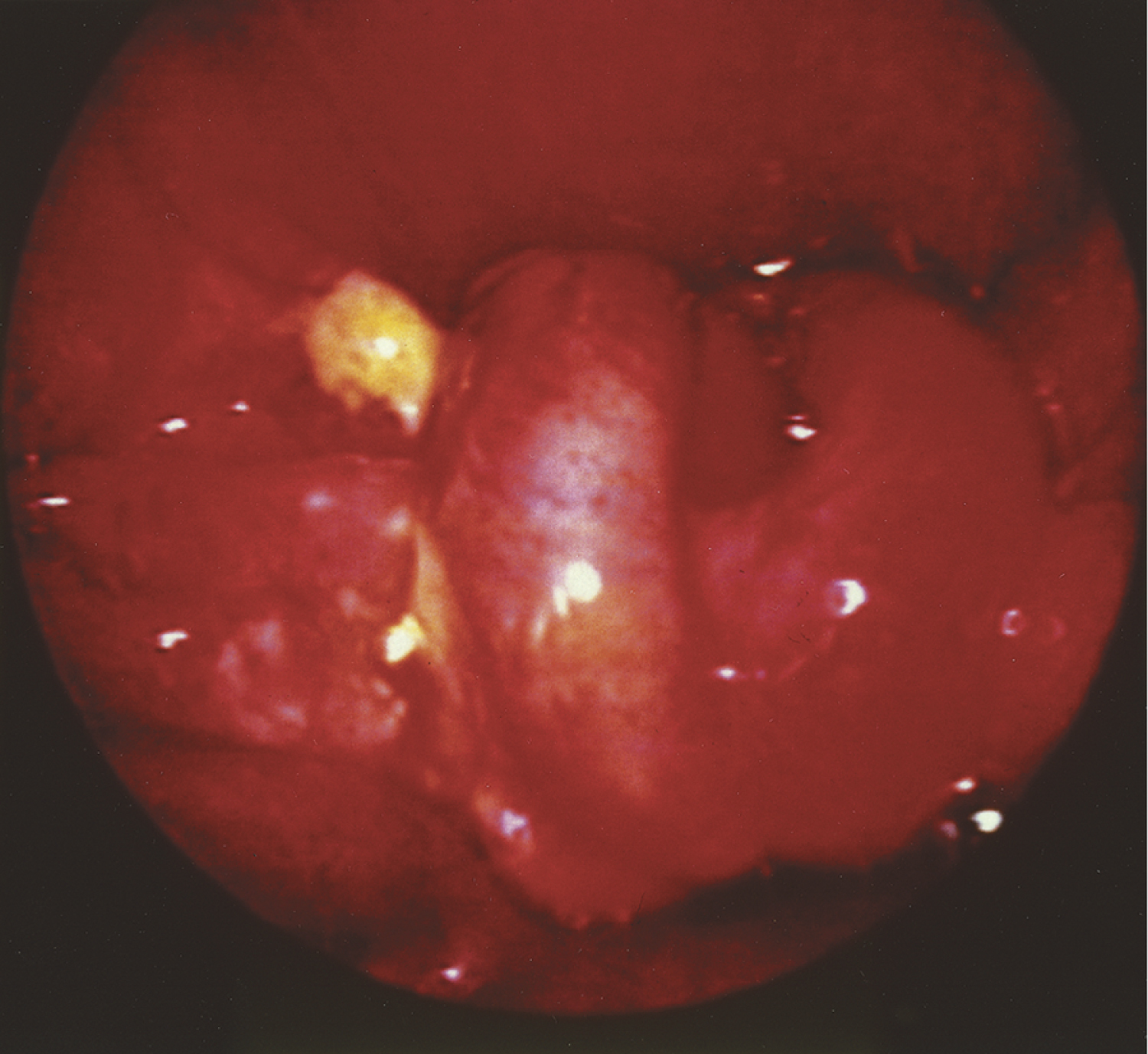epiglottitis /ep′iglotī″tis/ [Gk, epi + glossa, tongue, itis, inflammation] , an inflammation of the epiglottis. Acute epiglottitis is a severe form of the condition, which primarily affected children 2 to 7 years of age before a significant decrease in the occurrence of the disease resulting from the introduction of the Haemophilus influenzae B vaccine in 1985. It is characterized by fever; sore throat; drooling; stridor; croupy cough; and an erythematous, swollen epiglottis. The patient may become cyanotic and require an emergency tracheostomy to maintain respiration. The causative organism is usually Haemophilus influenzae, type B, but it can also be caused by Streptococcus, groups A, B, and C; S. pneumoniae; Klebsiella pneumoniae; Candida albicans; Staphylococcus aureus; Neisseria meningitides; Varicella zoster; and other viruses. Antibiotics, rest, oxygen, and supportive care are usually included in treatment. Also called epiglottiditis. See also acute epiglottitis.

